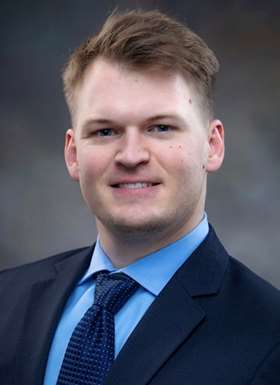The course of study will run from July 1 through June 30. Fellows may start on a different cycle, if this fits with the fellow's needs and those of the fellowship program. There are four main components within the Geriatrics Fellowship Program They are: the patient care experience, the core curriculum educational experience, and the research experiences.
Patient Care Experience
Our patient care experience focuses on broadening the scope and depth of your previous training in Family Medicine or Internal Medicine. All clinical training is supervised by Medical College of Wisconsin faculty and integrates Internal Medicine housestaff and medical students whenever possible. We work closely with many different disciplines to form effective interdisciplinary teams in patient care.
During training, rotations generally include:
- VA Geriatrics Consults, inpatient geriatrics assessment and treatment/rehab unit, at the Zablocki VA Medical Center
- Geriatrics primary care continuity clinic at the Zablocki VA Medical Center
- Home visits through Home Care Medical and Horizon Home Care and Hospice
- Palliative Care inpatient rotation
- Lutheran Home and Congregational Home
- Froedtert Hospital Geriatrics Consults service
- Community Care for the Elderly (CCE) outpatient center (multidisciplinary outpatient and day center program)
Core Curriculum
Educational Experiences
We present educational material in various formats. This allows for various learning styles, and brings in much more interaction and fun. Some ways we teach (and learn) include:
- Geriatrics Division Journal Club (weekly)
- Geriatrics Division Interest rounds to discuss challenging and interesting patient cases (weekly)
- Interdisciplinary Team rounds with social work, nursing, physical therapy, occupational therapy, psychiatry, pharmacy, nutrition
- Online mini-courses in various geriatrics topics
- Computerized standardized patient video clips with learning questions
- Participation in a regional telephone forum with other academic geriatrics fellowship programs to discuss interesting cases (monthly)
- Attendance at the Wisconsin Board Review Course and Update in Geriatric Medicine (hosted by our MCW faculty and those at UW Madison)
- Video DVDs covering geriatrics topics from the Wisconsin Board Review Course
- Small group sessions, individual one-to-one time with faculty and the program director
- Geriatrics Fellows' conference (weekly)
- Department of Medicine Grand Rounds (weekly)
- MCW combined fellowship conference (monthly)
Core Curriculum topics include:
- Overview of Geriatrics
- Diabetes in the Elderly
- Depression
- Urinary Incontinence
- Nursing Home Medicine
- Cardiovascular Changes Related to Aging
- Intro to Geriatric Dentistry
- Falls and Injury
- Geriatric Assessment
- Geriatric Health Care Teams
- Economics of Aging
- Infectious Disease in the Elderly
- Delirium
- Drug Therapy in the Elderly
- Dementia
- Metabolic Bone Disease
- Decubitus Ulcers
- Atypical Presentation of Cardiovascular Disease
Research Experiences
We offer frequent and wide exposure to research methodologies and opportunities based on the needs and interest of each fellow. These research experiences include:
- Geriatrics Research Seminar (monthly) – This seminar highlights ongoing research and scholarship by MCW faculty and guests on topics relevant to the field of Geriatrics. It incorporates statistica6l analysis, study design, and research methodology.
- Research topic/project conducted under the supervision of a Research Mentor, selected by the Fellow. The research activities are tailored to the Fellow's interests and are structured to be able to be completed easily in the available time.
- Month-long research/education block – A one-month period is set aside for each fellow to develop or continue with a research or educational project or quality improvement project.


